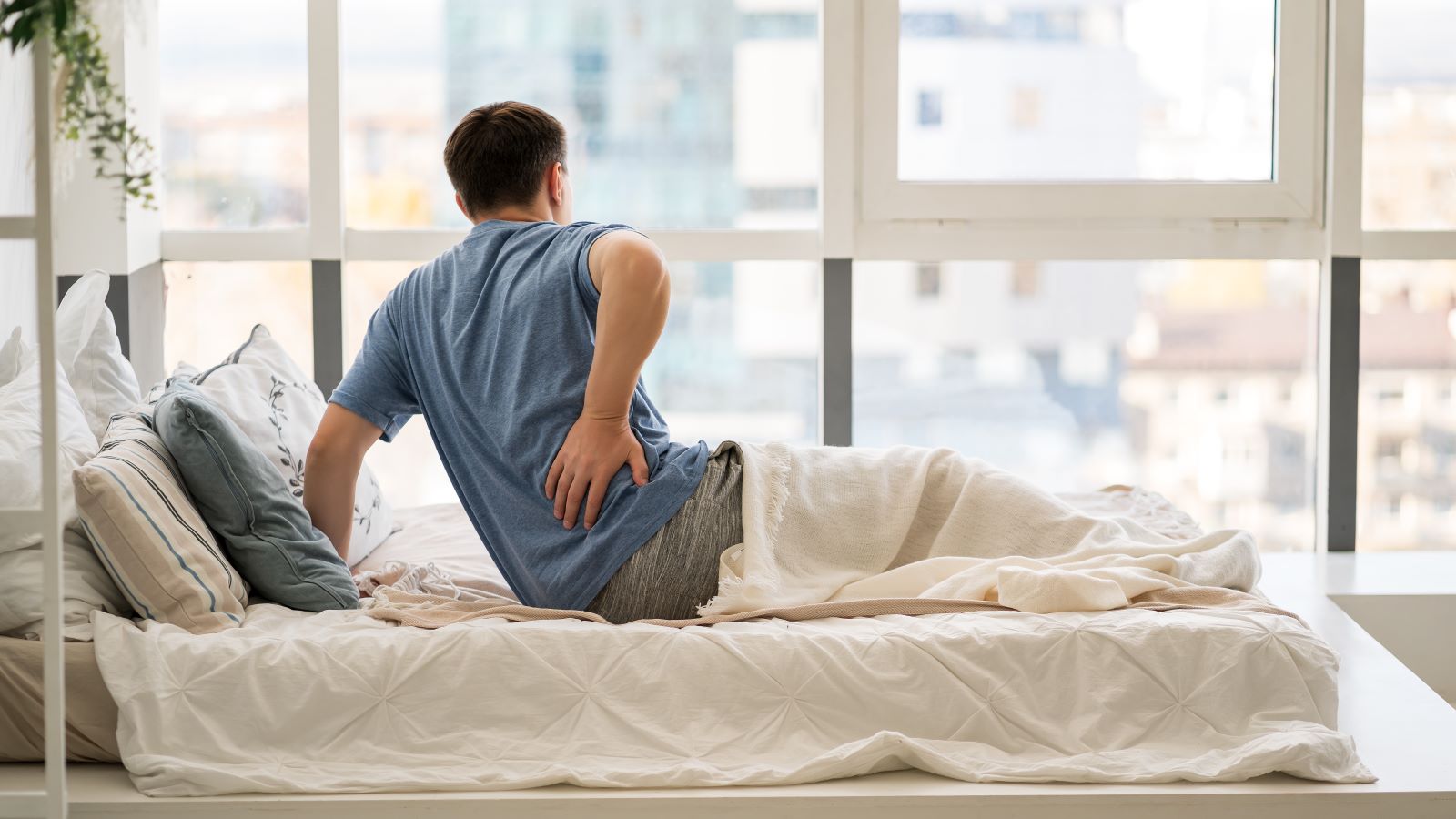<< Back
Could Kidney Stones Be Causing Your Back Pain?

March 15, 2024
If you’ve had back pain, you know it can be hard to figure out the cause, especially when it seems to come out of nowhere.
But there is one often-overlooked back pain culprit that has nothing to do with your spine or muscles — kidney stones. These tiny, yet mighty, formations can wreak havoc on your well-being, with the main symptom being back pain.
So how exactly do these tiny kidney stones cause so much back pain? We asked an expert.
Pain hits when a kidney stone gets lodged.
The pain generally happens when a kidney stone becomes lodged in the ureter, the tube connecting the kidney to the bladder. The blockage causes the kidney to swell, triggering intense pain.
“Regardless of the composition of kidney stones, they cause severe pain when they get stuck as they are passing,” says Shaun Hager, DO, an urologist with Tallwood Urology & Kidney Institute. “It’s not possible to predict if a stone will pass or if a stone will get stuck.”
> Related: These 5 Tips Could Help You Avoid Kidney Stones
How do I know if it’s a kidney stone or an injury?
Unlike back injuries, kidney stone pain typically radiates from the side of the back, known as the flank, rather than the midline of the spinal. Other signs to watch for are:
- Constant pain
- Not affected by movement
- Sudden onset
- Accompanied by nausea, vomiting or fever
“People often describe a kidney stone to be the worst pain they have ever felt,” explains Dr. Hager.
But do kidney stones always cause pain?
Sometimes if stones are stuck for long periods the pain can decrease and lead to a “silent obstruction.”
But that doesn’t mean you’re in the clear — stuck kidney stones can cause kidney damage.
Stones can also be trapped in the kidney itself and rarely cause pain, no matter their size. But they may cause recurrent infections or kidney damage over time.
When to see a doctor.
If you’re still unsure if an injury or a stone is causing your back pain, it’s best to consult your doctor, especially if the pain becomes unbearable.
“If you are having a fever or starting to feel sick, or if you are vomiting and can’t tolerate food or drink, you should see a doctor,” advises Dr. Hager.